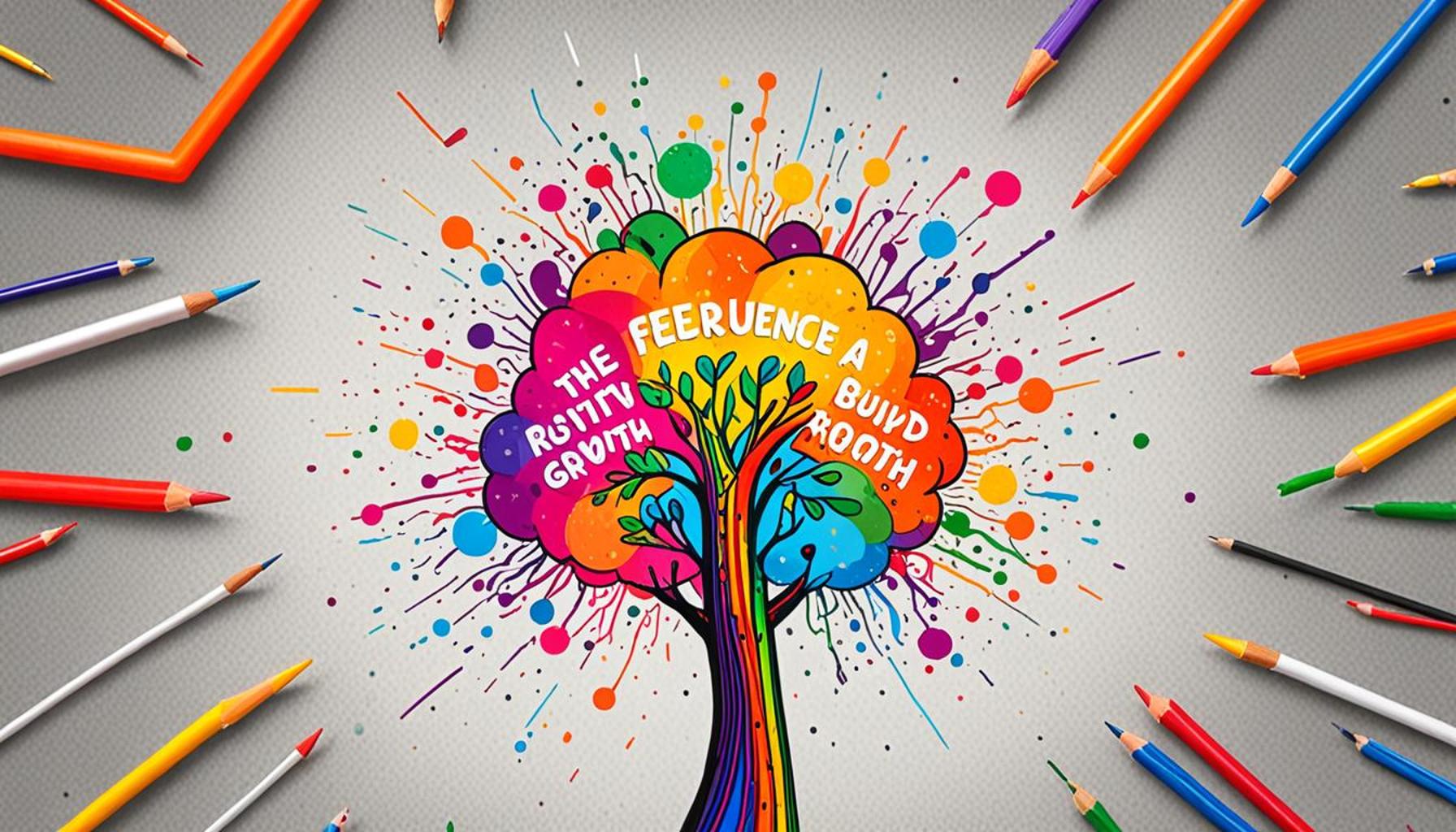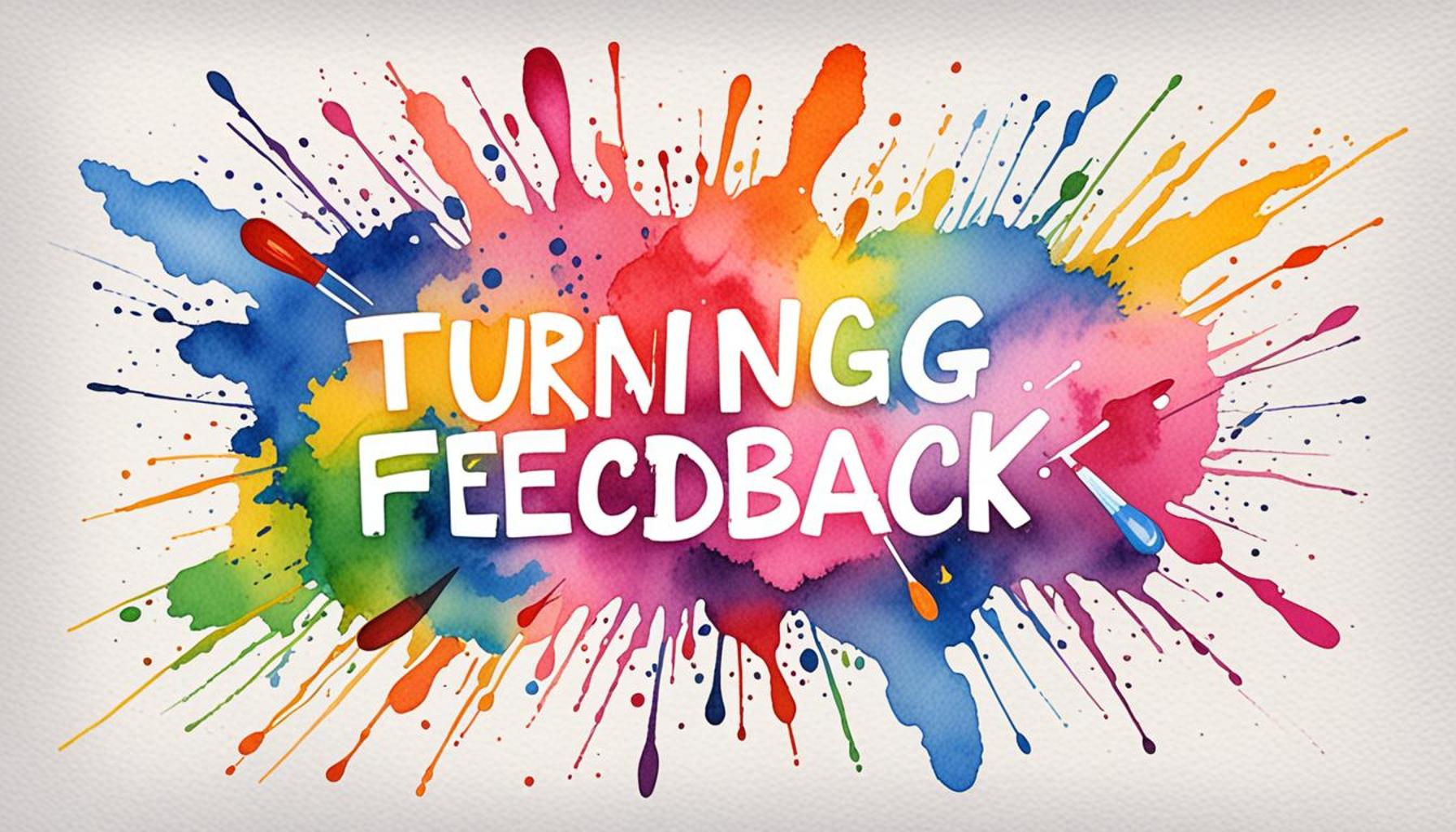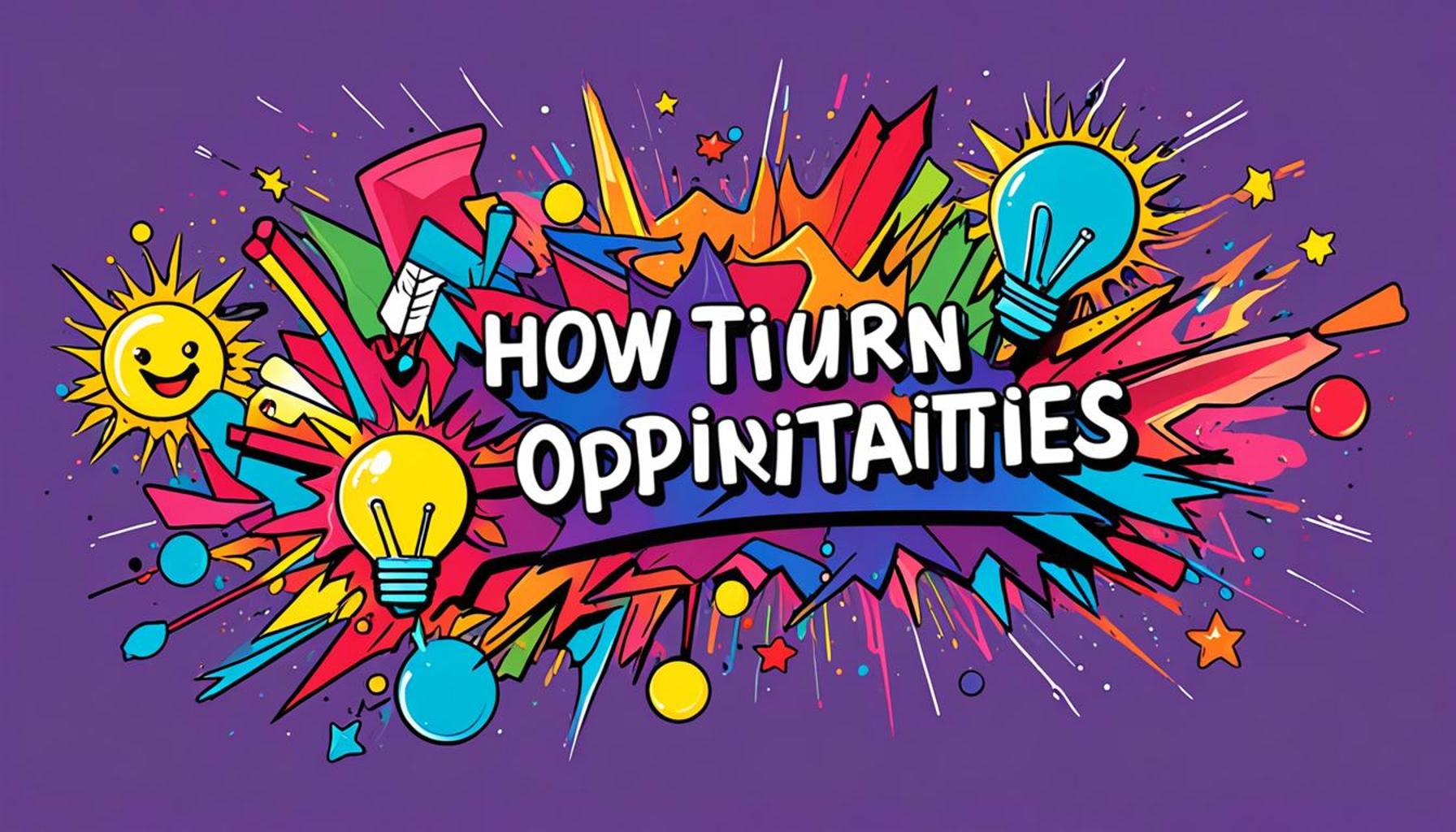The Influence of Positive Feedback on Building a Resilient Growth Mindset

Understanding the Connection
In today’s rapidly evolving world, the ability to adapt and learn is critical. Positive feedback serves as a powerful mechanism in shaping one’s mindset. It plays a pivotal role in encouraging resilience and fostering a growth mindset. By cultivating an environment where individuals feel valued and motivated, organizations and communities can unlock potential that might otherwise remain dormant.
The Essence of Positive Feedback
Feedback can take various forms, ranging from informal conversations to structured evaluations, but its positive aspects can significantly impact personal development. Here are some vital features of positive feedback:
- Encouragement to Explore: Positive feedback motivates individuals to step out of their comfort zones. For instance, a student who receives praise for trying new math problems is more likely to tackle even more difficult challenges in the future, thus broadening their learning experience.
- Affirmation of Efforts: It reinforces their hard work, making them more willing to embrace challenges. When employees are acknowledged for their contributions at work, it creates a culture of taking risks and innovating, as they know their efforts will be appreciated.
- Enhanced Self-Esteem: Receiving commendations boosts confidence, which is essential for resilience. Individuals who feel good about their abilities are better equipped to handle setbacks without losing motivation. This is particularly relevant in Nigerian culture, where communal success often hinges on individual growth.
Relevance in Nigeria
In Nigeria, where communities emphasize collective growth, the influence of positive feedback on a growth mindset is particularly striking. The cultural fabric is woven with the belief that nurturing one another leads to greater achievements as a society. Consider how this feedback manifests in various settings:
- Schools: In educational institutions across Nigeria, teachers often uplift students through constructive comments. A child’s confidence can skyrocket when a teacher praises their efforts in class discussions or assignments, encouraging them to engage actively and develop critical thinking skills.
- Workplaces: In corporate settings, managers who balance constructive criticism with encouragement can build a more resilient workforce. For instance, praising a team member for their role in a project, even while suggesting areas for improvement, can drive that employee to strive for success.
- Social Settings: Within friends and family, fostering a culture of support can transform relationships. Celebrating small victories and providing reassurance can enhance personal resilience, enabling individuals to tackle life’s challenges with confidence.
As we delve deeper into this topic, the importance of positive reinforcement in developing not only professional skills but also personal resilience becomes increasingly evident. The ripple effect of a supportive community solidifies the foundation for future generations to thrive, ensuring that the cycle of growth continues. For those seeking to deepen their understanding of this concept, exploring the psychological principles behind feedback and its social implications can unveil powerful strategies to enrich personal and communal development.
LEARN MORE: This related article may interest you

The Power of Positive Feedback in Cultivating Resilience
At the heart of fostering a resilient growth mindset lies the transformative power of positive feedback. This feedback does not merely acknowledge achievement; it acts as a catalyst for personal development and emotional growth. Many studies illustrate that when individuals receive encouraging remarks regarding their efforts, they are likely to engage more deeply with their tasks, embrace challenges, and persist in the face of obstacles. This is particularly relevant in the Nigerian context, where community and collaboration are woven into the very fabric of everyday life.
Mechanisms by which Positive Feedback Drives Growth
The influence of positive feedback on developing a growth mindset can be broken down into several core mechanisms:
- Promotion of Risk-Taking: Positive reinforcement creates an atmosphere where individuals feel safe to take risks. In Nigerian classrooms, for example, students who receive affirmative remarks are encouraged to participate more actively, engage in class discussions, and explore new subjects without the fear of failure.
- Validating Efforts: Recognizing and appreciating hard work serves not only to affirm the individual’s efforts but also reinforces the idea that persistence pays off. This is evident in workplaces where managers strike a balance between constructive criticism and recognition. For instance, a simple acknowledgment of an employee’s contributions can inspire a sustained commitment to excellence.
- Building Emotional Resilience: The emotional boost from positive feedback can significantly enhance an individual’s ability to cope with setbacks. In cultures like Nigeria’s, where communal interdependence is strong, individuals who receive support often develop a more resilient character, equipped to handle challenges with optimism and determination.
These mechanisms illustrate the practical implications of positive feedback in learning environments, workplaces, and personal relationships. It’s crucial to understand that the feedback should not be vague or generic; precise, actionable, and sincere praise is fundamental. This not only helps individuals recognize their strengths but also guides them towards areas where further development is needed.
Creating a Feedback-rich Environment
To fully harness the benefits of positive feedback, it is essential to cultivate an environment that encourages it. In Nigeria’s rapidly changing socio-economic landscape, the implementation of structured feedback channels in schools and businesses can be a game-changer. For instance:
- Teacher Training Programs: Investing in teacher professional development can help educators learn how to give effective positive feedback that enhances student engagement and learning outcomes.
- Employee Recognition Initiatives: Companies can initiate recognition programs that spotlight individual and team achievements, fostering a culture where hard work is celebrated.
- Community Support Groups: Establishing community centers where individuals can share achievements and provide mutual encouragement can strengthen resilience at the grassroots level.
As we explore these critical dimensions of positive feedback, it becomes clear that nurturing a resilient growth mindset is not solely about individual effort but also about fostering a supportive environment in which individuals feel valued and empowered to achieve their full potential. By investing in positive reinforcement practices, we set the stage for lasting personal and communal growth.
| Category | Details |
|---|---|
| Positive Reinforcement | Encourages individuals to pursue challenges by highlighting their strengths and achievements. |
| Growth Opportunities | Fosters a sense of resilience, helping individuals view failures as stepping stones for improvement. |
The impact of positive feedback on nurturing a resilient growth mindset cannot be overstated. In the realm of personal development, positive reinforcement plays a crucial role. It serves to encourage individuals to tackle challenges, as the acknowledgment of their strengths fosters confidence. When they receive constructive feedback, they are more inclined to embrace opportunities for enhancement. Moreover, the very essence of a growth mindset lies in the understanding that setbacks are not indicative of failure, but rather, they are essential growth opportunities. By viewing adversity through this lens, individuals develop an inherent resilience, allowing them to extract valuable lessons from every experience. This viewpoint not only prepares them for future challenges but also cultivates an unwavering commitment to self-improvement, ultimately leading to higher achievements and personal satisfaction. Understanding these dynamics can profoundly influence one’s approach to learning and development, creating an environment where resilience flourishes. This dynamic interplay of positive feedback and a growth mindset encourages individuals to push beyond their perceived limits, redefining the boundaries of personal potential.
CHECK OUT: Click here to explore more
Fostering a Culture of Positive Feedback
In order to effectively integrate positive feedback into everyday practices, it is essential to foster a robust culture that values this exchange. The context of Nigeria, with its diverse communities and rich traditions, serves as a fertile ground for cultivating such an environment. A culture of positive feedback not only uplifts individuals but can also transform groups into resilient collectives capable of navigating challenges.
Integrating Positive Feedback into Educational Frameworks
In Nigerian schools, the implementation of positive feedback can significantly enhance students’ learning experiences. Innovative teaching methods that leverage positive reinforcement foster a climate where students are encouraged to take intellectual risks. For example, educational programs that emphasize peer feedback can lead to collaborative learning environments. In these situations, students learn not only from the educator but also from their peers’ viewpoints, leading to a richer learning experience. Research indicates that students who engage in such environments are more likely to develop a resilient mindset as they learn to view challenges as opportunities for growth rather than threats.
The Role of Community Leadership
Community leaders hold a pivotal role in promoting a culture of positive feedback. By publicly recognizing individual and group achievements, these leaders can help solidify the importance of encouragement in community settings. During traditional gatherings or festivals, leaders can highlight stories of perseverance and success, setting a tone that resonates deeply with community members. Such narratives of success foster a collective identity that propels resilience and motivates individuals to strive for excellence. Additionally, creating awards or recognition systems within the community can reaffirm the value of positive reinforcement, driving a high-spirited approach toward personal and communal development.
Encouraging Positive Feedback in the Workplace
Within the Nigerian workplace, implementing a structured system for providing positive feedback can significantly enhance employee morale and productivity. Organizations can benefit from training their management teams to offer timely and sincere recognition of employees’ efforts. For instance, regular check-ins that include both positive feedback and areas for improvement can lead to a continuous learning cycle. This balanced approach assures employees that while their work is valued, there is also room for growth. Furthermore, initiatives such as “Employee of the Month” programs or team celebrations can serve to reinforce a culture of positivity, motivating workers to embrace challenges with enthusiasm.
Enhancing Feedback Strategies through Technology
As technology continues to penetrate every aspect of life, leveraging digital tools to foster positive feedback can have far-reaching benefits. Educational and corporate platforms that encourage feedback through apps and online forums create opportunities for continuous dialogue. For instance, using platforms where students can share accomplishments or employees can post project milestones offers instant recognition and encouragement. This digital evolution not only provides a space for sharing successes but also helps community members stay connected, thereby promoting a collective growth mindset.
Ultimately, the efficacy and impact of positive feedback in cultivating resilience extend beyond mere acknowledgments. By instilling these values in education, community leadership, and workplaces, the foundation for a resilient growth mindset becomes firmly established, allowing individuals and groups to thrive in the complex landscape of Nigerian society.
CHECK OUT: Click here to explore more
Conclusion
In conclusion, the influence of positive feedback is profound in shaping a resilient growth mindset across various sectors within Nigerian society. By prioritizing an environment where encouragement is the norm, individuals, communities, and workplaces can unlock their potential, turning challenges into gateways for innovation and growth. The integration of positive feedback into educational frameworks enhances learning experiences, urging students to embrace intellectual risks and view setbacks as opportunities. In communities, leaders play a crucial role in establishing narratives that celebrate achievement, fostering a collective resilience that motivates further efforts.
Moreover, the workplace benefits significantly from a well-structured feedback culture, where recognition not only boosts morale but also cultivates a supportive atmosphere conducive to personal and professional development. The rise of technology presents new avenues to amplify positive feedback, making it easily accessible and fostering continuous dialogue among peers. As the digital landscape evolves, embracing these tools can create a lasting impact, further deepening community ties while nurturing a growth mindset.
Ultimately, investing in a culture that values positive feedback yields tangible benefits, propelling individuals and collectives towards sustainable success. As Nigeria continues to navigate its diverse challenges, the establishment of resilient growth mindsets rooted in encouragement and support will be essential for overcoming obstacles and achieving collective progress. By embracing this transformative approach, we can effectively prepare for future uncertainties, making the pursuit of excellence a shared endeavor.


